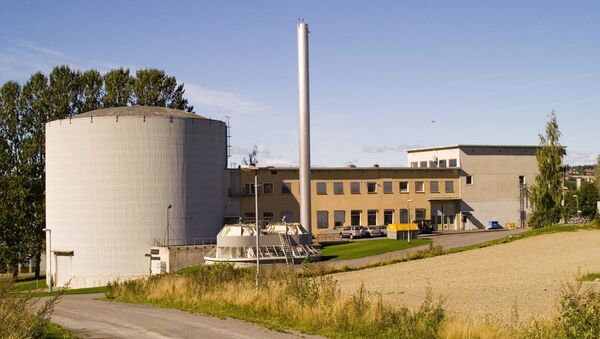Norway's last nuclear reactor in operation, the Jeep II at Kjeller, has been closed down after more than 50 years in service, the news outlet Nettavsien reported.
The decision to shut down the reactor, which has been put on hold for maintenance and control since December 2018, is based on an overall assessment of its technical and financial conditions, the Institute for Energy Technology (IFE) informed.
In January, corrosion was found on components that are important for the safety of the reactor. IFE's conclusion was that repairs will lead to a long-term shutdown of the reactor, which results in costs that are higher than the IFE can bear.
"This means that a decommissioning of Norway's nuclear facilities will commence. It is a comprehensive and large job that will take decades", IFE CEO Nils Morten Huseby said.
According to him, the total cost of the clean-up efforts will exceed NOK 15 billion ($1.7 billion).
READ MORE: It's Safe to Eat Finland's 'Chernobyl Mushrooms' — Watchdog
Huseby doesn't see any point in building a new reactor. Rather, research infrastructure shall be re-vamped to avoid the disadvantages of having to run a reactor, he suggested.
"When it comes to research, we will have to change some of the routines to continue research without the necessity of having access to a reactor. We see more opportunities for this and do not believe the impact on research will be particularly large", Huseby explained.
According to him, IFE continues to focus on research and development in the fields of energy, digitalisation, nuclear technology, and radiopharmaceuticals.
The news of the last standing reactor going down was met with elation at the Oslo-based environmental NGO Bellona Foundation, which has spent decades trying to keep Norway's energy policy as green as possible.
"For 30 years, Bellona has been working to reveal all the scandals at the nuclear reactor at Kjeller and Halden. There has been a great lack of security and a negative culture of secrecy surrounding it", Bellona's perennial leader Frederic Hauge, who founded it in 1986, said.
He argued that Norway's nuclear activity, including a storage facility for radioactive waste established at Himdalen in 1998, has resulted in a "nasty and expensive heritage". According to Bellona's calculations, the clean-up costs over the next few years alone will reach "at least" NOK 20 billion ($2.3 billion).
Huseby described Bellona's take as one-sided, reminding of the value created through the research activity at the reactor.
"It has been documented that Norway has earned over NOK 200 billion [$23 billion] on technology developed as a result of research at its reactors", Huseby stressed.
READ MORE: Costlier Than Pyramids: Finnish NPP Becomes World's Second-Priciest Building
The Jeep II reactor at Kjeller has been in operation since 1967 and has been used by researchers nationally and internationally within physics, materials, cancer medicine, and renewable energy, as well as nuclear disarmament. The closure will affect IFE's staff, as 40 of its total staff of 600 are connected to the reactor.
There is no fuel or heavy water in the reactor, and it does not pose a danger to health, the environment, or safety.
Norway's penultimate reactor at Halden was closed in June 2018.




